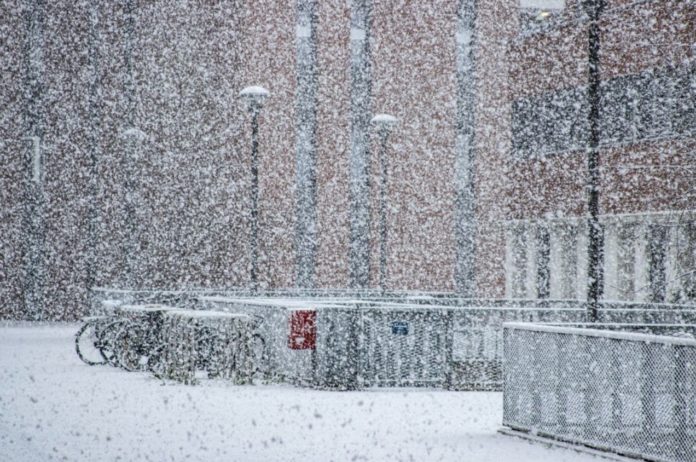A research paper that studied more than half a million cases of cardiac arrest has discovered a strong link between cold temperature and the risk of having a heart attack.
A heart attack is a serious medical emergency in which the supply of blood to the heart is suddenly blocked, usually by a blood clot. A study has found a link between cold weather and an increased risk of having a heart attack.
The study, published in the British journal Heart, found that a sudden cold snap can increase a person’s risk of having a heart attack.
Researchers found a strong link between chilly spells of weather and an increased in the potentially deadly condition.
Sudden chilly spells of weather were found to make blood vessels constrict, reducing the flow and triggering clots which can then lead to cardiac arrest.
Cold weather makes the heart work harder to keep the body warm.
The blood vessels constrict so the heart can concentrate on pumping blood to your brain and other major organs.
And because of this, it becomes harder for elderly people and very young children to regulate their own temperature.
This puts them at higher risk in extreme temperatures.
As well as protecting your own health, always remember to keep in touch with elderly and vulnerable friends, family and neighbours during cold snaps to make sure they’re warm and comfortable.
Make sure that you can recognize the symptoms and signs of a heart attack.
Dr Diana Gall from Doctor4U further explained:
In cold weather, the blood vessels constrict, forcing your heart to work harder. This pressure on the heart can in some cases lead to a heart attack.
One way your body responds to cold temperatures in order to protect itself and retain heat is by constricting the blood vessels near the surface of the skin.
When this happens, blood flow is reduced to these vessels, which means more pressure in the rest of the system.
This in turn means the heart has to work harder than usual to get oxygenated blood around the body.
This raises blood pressure and increases the chances of blood clots forming, both of which are factors in heart attacks and strokes.
Common signs of heart attack include:
- Pressure, tightness, pain, or a squeezing or aching sensation in your chest or arms that may spread to your neck, jaw or back
- Nausea, indigestion, heartburn or abdominal pain
- Shortness of breath
- Cold sweat
- Fatigue
- Light-headedness or sudden dizziness
Photo by Nik Oiko/SOPA Images/LightRocket via Getty Images
